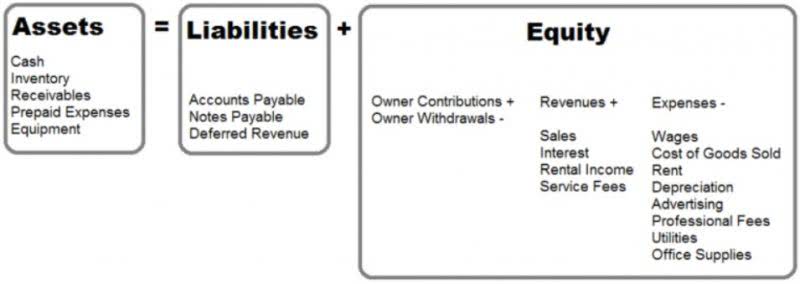In the case of services or investment, it is to be recognized when income is accrued. For information pertaining to the registration status of 11 Financial, please contact the state securities regulators for those states in which 11 Financial maintains a registration filing. Similarly, an expense should be recognized when goods are bought or services are received, whether cash is paid or not. Businesses and clients need to adhere to the agreed standard procedure before they can recognize revenue. For companies deferring revenue, revenue recognition is important for forecasting and regulatory purposes. On May 28, 2014, the Financial Accounting Standards Board (FASB) and International Accounting Standards Board (IASB) jointly issued Accounting Standards Codification (ASC) 606.
What is the approximate value of your cash savings and other investments?
With the IFRS 15 – Revenue from contract with customers comes to effect, the revenue recognition has been divided into five steps called five steps model. Another important principle is the conservatism principle, which advises accountants to exercise caution and avoid overestimating revenues or underestimating expenses. This principle is particularly relevant in situations where there is uncertainty about the collectability of revenue or the occurrence of expenses. By being conservative, companies can avoid the pitfalls of overstating their financial health, which can lead to misguided business decisions and potential regulatory scrutiny. The revenue has to be recognized when it is realized, not when an order realization in accounting is received.
Why Is Revenue Recognition Important?

This means that a company might recognize revenue from a sale even if the payment is expected in the future. Analysts, therefore, prefer that the revenue recognition policies for one company are also standard for the entire industry. Having a standard revenue recognition guideline helps to ensure that an apples-to-apples comparison can be made between companies when reviewing line items on the income statement. Revenue recognition principles within a company should remain constant over time as well, so historical financials can be analyzed and reviewed for seasonal trends or inconsistencies. This principle states that profit is realized when goods are transferred to the buyer.
Realization vs Recognition
The realization Principle is a revenue recognition principle that states that the income or revenue is recognized only when earned. The company is reasonably certain that the payment against the same will be received from the customer. It generally occurs when the underlying goods are delivered, risk and rewards are transferred, or income gets due, irrespective of https://www.facebook.com/BooksTimeInc/ whether the amount is received or not.
- In these cases, the reduction in receivable value should also be taken to the profit & loss account, and the net realizable value should be shown in the books as trade receivable.
- The answer lies in an important accounting principle known as the realization concept.
- This highlights how revenue from contracts with customers is treated, providing a uniform framework for recognizing revenue from this source.
- Revenue is typically recognized when a critical event has occurred, when a product or service has been delivered to a customer, and the dollar amount is easily measurable to the company.
- XYZ Consulting is hired to provide consulting services for a client over six months for a total fee of ₹6,00,000.
Realisation Principle in Revenue Recognition

In this second example, according to the realization principle of accounting, sales are considered when the goods are transferred from Mr. A to Mr. B. The realization principle of accounting is one of the pillars of modern accounting that provides a clear answer to this question. At the same time, the realization principle also gave birth to the accrual system of accounting. Arrangement dictates that there needs to be an agreement between two parties in a transaction. Billie Nordmeyer works as a consultant advising small businesses and Fortune https://www.bookstime.com/ 500 companies on performance improvement initiatives, as well as SAP software selection and implementation. During her career, she has published business and technology-based articles and texts.
- If a client has no history, businesses need to hold off recognizing revenue until the client pays.
- Revenue recognised under the realisation principle is recorded at the amount received or expected to be received.
- Let’s dive deep into understanding the realization concept and its significance in measuring business income.
- It is one that determines the profit or loss of a business at the termination of its activities.
- An account that tracks each partner’s investment, withdrawals, and share of profits/losses in a partnership.
- As long as there’s a reasonable expectation that the customer will pay, the company can recognize the sale as revenue, even if the payment will be received at a later date.
Our mission is to empower readers with the most factual and reliable financial information possible to help them make informed decisions for their individual needs. Our writing and editorial staff are a team of experts holding advanced financial designations and have written for most major financial media publications. Our work has been directly cited by organizations including Entrepreneur, Business Insider, Investopedia, Forbes, CNBC, and many others. At Finance Strategists, we partner with financial experts to ensure the accuracy of our financial content.

Close the gap between sales bookings and revenue realization
Recognition, on the other hand, is the formal recording of these transactions in the financial statements. This step involves acknowledging that an economic event has occurred and that it should be reflected in the company’s books. Recognition is governed by specific accounting standards and principles, which dictate when and how transactions should be recorded. For instance, under the accrual basis of accounting, revenue is recognized when it is earned, regardless of when the cash is received.
